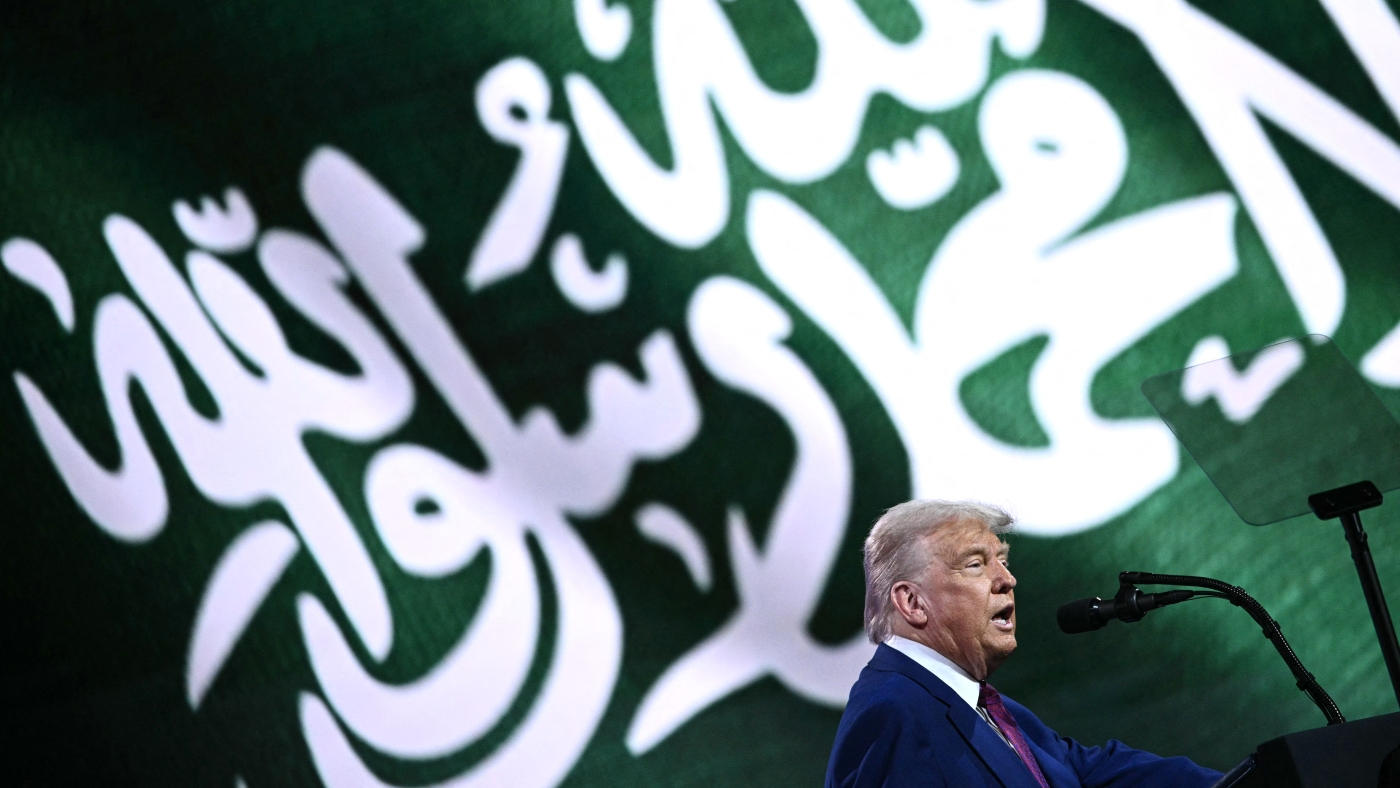A Strategic Pivot
President Trump’s declaration to terminate sanctions on Syria during his visit to Saudi Arabia signals a pivotal moment in U.S. foreign policy. This decision, announced amidst a backdrop of substantial business deals and diplomatic engagements, underscores a broader strategy to fortify alliances and reshape economic and political landscapes in the Middle East. The sanctions, imposed for decades, were a response to Syria’s alleged support for terrorism and human rights abuses. However, Trump’s administration views this lifting of restrictions as an opportunity for Syria to pursue a path towards prosperity and regional stability.
Economic and Diplomatic Maneuvers
A Business-First Approach
Trump’s visit to Saudi Arabia was characterized by significant economic agreements, including a monumental $142 billion arms deal and $80 billion in technology investments from leading U.S. companies. This business-focused strategy aims to secure advantageous deals while fostering stronger economic ties with Gulf states. The lifting of sanctions on Syria is part of this broader economic maneuver, opening up new markets and investment opportunities for U.S. firms.
Diplomatic Shifts
The decision to lift sanctions also carries profound diplomatic implications. Trump’s announcement precedes a scheduled meeting with Syrian President Ahmed al-Sharaa, a figure previously labeled as a terrorist by the U.S. This meeting, set to occur in Saudi Arabia, represents a dramatic shift in U.S. policy towards Syria. It suggests a potential normalization of relations with a country long isolated due to its role in regional conflicts and human rights violations.
Strategic Realignment in the Middle East
Counterbalancing Iran
Trump’s move to lift sanctions on Syria can be seen as part of a broader strategic realignment in the Middle East. By easing restrictions, the U.S. aims to encourage Syria’s new government to adopt a more constructive role in the region. This shift could also serve as a strategic counterbalance to Iran’s influence, aligning with Trump’s policy of exerting “maximum pressure” on Iran to negotiate.
Encouraging Regional Stability
The lifting of sanctions opens the door for increased trade and investment in Syria, which could help rebuild the country’s war-torn infrastructure and economy. For the U.S., this move presents new economic opportunities, aligning with Trump’s economic agenda. It also offers Syria a chance to move forward and potentially play a more stabilizing role in the region.
Challenges and Criticisms
Potential Risks
Despite the potential benefits, the decision to lift sanctions is fraught with challenges. Critics argue that easing restrictions without significant reforms in Syria could embolden the regime and undermine efforts to promote democracy and human rights. This move could also strain relations with other U.S. allies in the region who have been staunch opponents of the Syrian regime.
Balancing Act
The U.S. faces a delicate balancing act in navigating this complex landscape. On one hand, lifting sanctions could open up new economic opportunities and encourage regional stability. On the other hand, it risks emboldening a regime with a history of human rights abuses and undermining U.S. alliances in the region. The outcome of this policy shift will have far-reaching implications for the Middle East and beyond.
A New Chapter in U.S.-Syria Relations
A Bold Move
The lifting of sanctions on Syria by the Trump administration marks a new chapter in U.S.-Syria relations. This decision, made during a pivotal visit to Saudi Arabia, reflects a strategic realignment aimed at strengthening ties with key allies in the Middle East while opening up new economic opportunities. However, it also comes with significant challenges and potential risks.
Reshaping Geopolitical Dynamics
As the U.S. navigates this complex landscape, the outcome of this policy shift will have far-reaching implications. The lifting of sanctions on Syria is a bold move that could reshape the geopolitical dynamics of the Middle East. It offers Syria a chance at greatness while presenting the U.S. with new opportunities and challenges. The success of this policy will depend on the U.S.’s ability to balance economic and diplomatic interests with its commitment to human rights and regional stability. The world watches as this new chapter unfolds, with the potential to redefine the future of U.S.-Syria relations and the broader Middle East.

